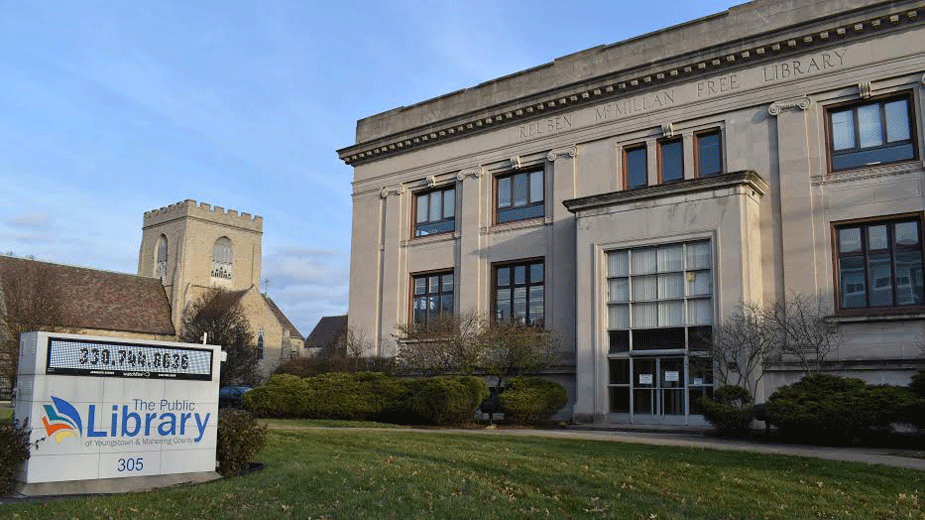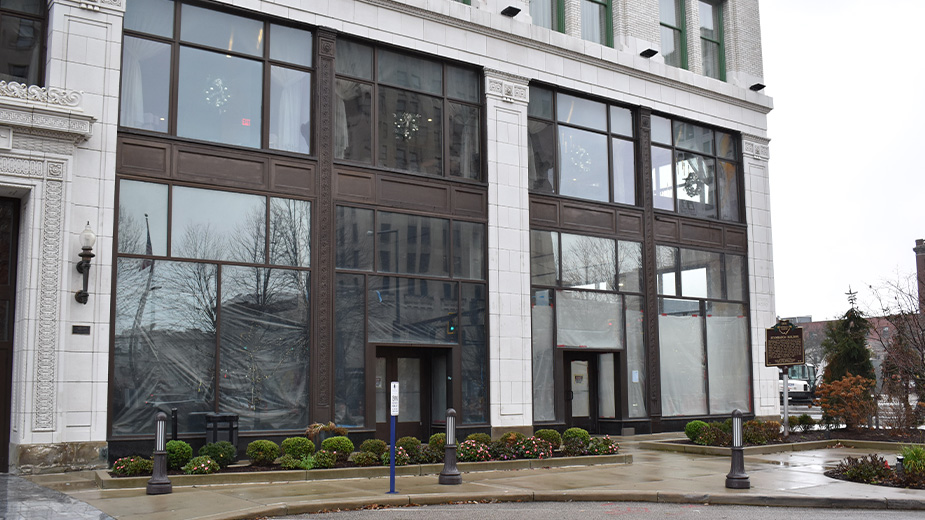Public Library Eyes December for Going Fine-Free
YOUNGSTOWN, Ohio – The Public Library of Youngstown & Mahoning County plans to eliminate fines for overdue books as early as December.
Executive Director Aimee Fifarek discussed plans for the system Thursday during a meeting of the system’s board of trustees, which was held at the Newport Library as well as virtually.
The elimination of late fees is intended in part to provide economic support to library patrons at a challenging time economically because of the coronavirus pandemic, according to Fifarek. Unemployment in Mahoning County was 11.1% in August, fifth-highest among Ohio’s 88 counties.
“This is something that has been discussed for quite some time and we have never felt it was really the right time to do it,” she said. “With the ongoing situation in our community, now seemed like an excellent time to make the change.’
While the daily fines might be only a minor inconvenience for most patrons, for those in more dire economic straits, they represent a barrier to access library materials.
The countywide system last year derived just $71,909 from fees for overdue materials, less than 1% of the library’s budget, she reported. Patrons would remain responsible for paying replacement costs for unreturned materials once the period for renewals runs out, she emphasized.
“This is a very appropriate time to do it,” agreed Dr. David Ritchie, president of the library’s board of trustees.
PLYMC would join a growing group of libraries across the country, in communities large and small, that have eliminated fines for overdue materials, one that has accelerated during the pandemic, when library closures prevented patrons from returning materials, Fifarek said.
In Ohio, the Stark Library system in Stark County eliminated fines in 2014.
“We help all people in our community tap into the tools and resources they need to live life, and fines create a barrier for the economically challenged,” said Jen Walencik, community engagement specialist at the Stark Library.
“Life happens – especially in these crazy times – so the flexibility to keep an item a few extra days without penalty is a relief to our responsible borrowers,” she added. “By removing the barrier of fines, we are able to better serve the members of our community who need their library the most.”
During the library’s first year of going fine free, circulation increased 11.4%, she reported. Surprisingly, the system also discovered eliminating the fines saved money, as the cost of collecting and processing them exceeded the money collected.
Baltimore’s Enoch Pratt Free Library went fine-free in June 2018, an early initiative of former PLYMC Executive Director Heidi Daniel, who took over as the library’s president and CEO the year before.
The library found that many of its patrons who had blocked cards because they had reached their threshold in overdue fines were in Baltimore’s most vulnerable communities and most in need of the library’s services, said Meghan McCorkell, Pratt’s director of marketing and communications.
“Our business at the library is access. We provide access to information, resources, and opportunities for everyone. Fines were a barrier to that access,” McCorkell said. “Going fine-free has opened the doors of the library to so many more people in our community.”
Six months after fines were eliminated, circulation of print materials increased 49%, and returns of checked out materials rose as well, she reported. Additionally, e-material circulation increased 116% over the previous six months, branch programming attendance reached a five-year high and 2,000 more people signed up for library cards over the previous half of the year.
Fifarek set an aspirational goal of December to launch the fine-free program in connection with the rollout of a software update that will automatically renew checked-out physical materials that have not been reserved, as well as a fine-forgiveness initiative, so patrons can begin January with a “clean slate.”
The system is evaluating potentially reducing the length of time physical materials can remain checked out, Fifarek said.
Fifarek also told trustees the first phase of the Main Library renovation project – work on the parking lot and other exterior space – is ahead of schedule, and that Main Library will partially reopen mid-month.
The announcement of the exact date will come next Wednesday, as part of a celebration of the 200th birthday of Reuben McMillan, the library board’s first president and the individual largely responsible for the creation of the library. A capital campaign for the renovation project will also kick off at the event.
Fifarek also announced that the library received $350,000 in assistance from the federal coronavirus relief funding through the state of Ohio. The funds will help the library purchase personal protective equipment including hand sanitizer, face shields, masks and gloves, as well as Plexiglas barriers, hand sanitizer, air filters, additional cleaning supplies and large bins to quarantine returned library materials.
In addition, the library board unanimously adopted a policy to permit library employees to work as precinct election officials on Election Day. Many Ohio communities are facing a shortage of poll workers because many of those who normally work the polls are in high-risk categories for COVID-19. Library employees will be able to collect their regular pay as well as receive pay for being poll workers.
Fifarek said at least a dozen employees – including her – already have volunteered to serve as poll workers.
Copyright 2024 The Business Journal, Youngstown, Ohio.



